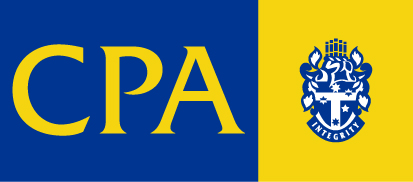‘Catch up’ contributions were introduced on 1 July 2018, whereby any ‘unused’ contributions in the member’s concessional contributions cap could be caught up and made into their superannuation fund during the following financial years. 2019-2020 was the first time these types of contributions could be made.
It is important to note this is not a new contribution but rather a measure that allows members to boost their retirement savings. Members with lower superannuation balances will no longer lose any unused concessional contributions amounts and can use them at a future date when they are able to make additional concessional contributions into their fund.
‘Catch up’ contributions effectively allow members to contribute greater amounts than the general concessional contributions cap (currently $25,000p.a.). However, certain conditions must be met to be able to do this:
- ‘Catch up’ contributions can only be made where a member’s total superannuation balance (TSB) isless than $500,000 on the 30 June prior to the financial year in which the catch up contribution is to be made.
- Unused contributions will be available for member’s use over a 5-year rolling period; at which time they will expire if not utilised. Currently, members are entitled to catch up on up to 2 years’ worth of unused concessional contributions.
A member will be able to make additional concessional contributions, by applying previously unused concessional contributions cap amounts from the past two years (i.e. since 1 July 2018) without exceeding the concessional contribution cap.
Example
In the 2018-19 financial year, Layla’s employer made superannuation guarantee contributions of $10,000 on her behalf to her superannuation fund. Layla did not make any deductible personal superannuation contributions to her fund.
The concessional contributions cap for the 2018-19 financial year was $25,000. Layla’s unused concessional contributions cap amount for the 2018-19 financial year is, therefore, $15,000 which can be carried forward and utilised over the next 5 years.
As a result, for the 2019-20 financial year, Layla could contribute up to $40,000 of concessional contributions, assuming her TSB on 30 June 2019 was less than $500,000.
During 2019-20 financial year, Layla’s employer again made superannuation guarantee contributions of $12,000 on her behalf into her superannuation fund. Layla also decided to make a deductible personal contribution into her fund of $10,000 to boost her retirement benefits. Her TSB at 30 June 2020 is still less than $500,000.
| 2018-19 | 2019-20 | 2020-21 | 2021-22 | |
| General contribution cap | $25,000 | $25,000 | $25,000 | $27,500 |
| Concessional contribution made | $10,000 | $12,000 | ||
| Unused concessional contributions made | Nil | $10,000 | ||
| Annual carry forward unused amount | $15,000 | $13,000 | ||
| Total carry forward cap accrued | $15,000 | $18,000 | $18,000 |
During the current financial year (2020-21), Layla could make a concessional contribution into the fund of up to $43,000 without breaching the concessional cap.
Where a members TSB creeps over $500,000 for a financial year, does not mean that they lose the benefit of unused concessional contributions from accumulating. They will always accumulate. An assessment then needs to be made as to whether they can be utilised by the member.
Moving into the 2021-22 financial year, where the concessional contribution cap is set to increase to $27,500, will provide increased contribution capacity and a member’s unused concessional contributions will be based on this amount. This can create a greater unused amount that could be utilised over the coming years.
Example continues….
In the example above, as an alternative, Layla could accumulate her unused concessional contributions over the next 5 years and plan to make a larger contribution later when the following situations might arise:
- Expecting a large capital gain on the sale of assets. Layla could use proceeds to fund personal deductible contributions to minimise her personal tax liability.
- Contributing an annual bonus or a windfall into super.
- Salary sacrificing larger amounts into super.
- Splitting amounts with a spouse.
The members TSB must be considered at the time of contribution to ensure eligibility.
If you have any questions, please contact us
“Liability limited by a scheme approved under Professional Standards Legislation”





